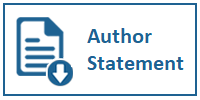Personalisation and User Engagement
A Content Analysis of Anies Baswedan's Facebook Posts
DOI:
https://doi.org/10.31937/ultimacomm.v13i2.2220Abstract
The development of web 2.0 of social media has caused many changes in the implementation and approach of a political campaign. Nowadays, political campaigns are more personal and can be carried out at any time. Politicians can share personal information directly through social media, even outside a particular electoral or media agenda. The public can also directly communicate with politicians through social features in likes, comments, and shares. Therefore, it becomes interesting to analyse these changes. This study applied a quantitative content analysis method to explore further the concept of personalisation in Facebook contents of one of the famous politicians in Indonesia, Anies Baswedan. The concept of personalisation used in this study is Van Santen and Van Zoonen's typology of self-personalisation. The results show Anies Baswedan Facebook contents commonly utilised the typology of self-personalisation, a correlation between text visual post type with the use of self-personalisation typology, and a strong and positive correlation between the use of self-personalisation typology with the level of user engagement obtained.
Keywords: campaign strategy, Facebook, political communication,self-personalisation, social media
Downloads
Downloads
Published
How to Cite
Issue
Section
License
Ultimacomm Jurnal Ilmu Komunikasi allows readers to read, download, copy, distribute, print, search, or link to its articles' full texts and allows readers to use them for any other lawful purpose. The journal allows the author(s) to hold the copyright without restrictions. Finally, the journal allows the author(s) to retain publishing rights without restrictions
1. Authors are allowed to archive their submitted article in an open access repository
2. Authors are allowed to archive the final published article in an open access repository with an acknowledgment of its initial publication in this journal















